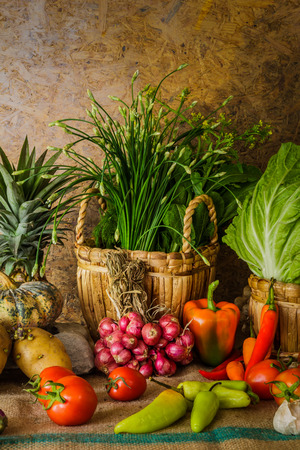Introduction to Sustainable Cleaning
In the heart of every British home, the kitchen is a place for gathering, preparing wholesome meals, and sharing stories over a cuppa. Yet, traditional cleaning habits often rely on harsh chemicals and single-use plastics, which can impact both our health and the environment. Embracing eco-friendly cleaning practices in British kitchens is not just a trend but a mindful shift towards sustainability that honours our countryside, waterways, and local communities. With growing awareness of climate change and pollution challenges across the UK, many households are seeking greener alternatives that reflect the nation’s values of stewardship and resourcefulness. By making simple changes—such as using natural ingredients or reusable materials—we can reduce our environmental footprint while maintaining sparkling clean kitchens that are safe for our families and pets. This article explores practical DIY recipes and sustainability tips tailored for British homes, blending tradition with innovation to create a healthier, more resilient future.
Understanding Common Kitchen Pollutants
When it comes to eco-friendly cleaning in British kitchens, understanding what you’re up against is half the battle. Everyday kitchen activities can introduce a range of common pollutants that not only affect the cleanliness of your home but also have an impact on both your health and the wider environment. From the remnants of a classic Sunday roast to daily tea-making rituals, British kitchens see a fair share of messes and pollutants. Let’s explore what these are, how they affect our wellbeing, and why they matter in the context of sustainability.
Typical Kitchen Messes in UK Households
| Type of Mess | Common Sources | Potential Impact |
|---|---|---|
| Grease & Oils | Frying food, roasting meats | Can clog drains, attract pests, contribute to indoor air pollution |
| Sugar & Starch Residue | Baking, making tea or coffee, spilled cereals | Encourages bacterial and mould growth if left uncleaned |
| Dairy Spills | Milk for tea or cereal, cheese snacks | Quickly sours and produces unpleasant odours; attracts insects |
| Chemical Cleaners Residue | Commercial sprays and disinfectants | Can linger on surfaces, contributing to indoor pollution and possible skin irritation |
Common Kitchen Pollutants and Their Effects
- Microplastics: Often found in synthetic sponges or certain cleaning products; these tiny particles can end up in waterways when washed down the sink.
- Volatile Organic Compounds (VOCs): Released from traditional cleaning sprays and air fresheners, VOCs can exacerbate respiratory problems and contribute to poor indoor air quality.
- Bacteria & Mould: Thrive in damp areas such as under sinks or around fridge seals—posing risks for allergies and food contamination.
The Environmental Connection
The use of harsh chemical cleaners not only affects your immediate surroundings but also impacts the broader environment once these substances enter local water systems. By being mindful of what goes down your drain—and choosing natural alternatives—you help reduce water pollution and support healthier ecosystems. Understanding these pollutants sets the stage for adopting more sustainable cleaning habits that benefit both your family’s health and our planet.

3. Essential Ingredients for Green Cleaning
Creating a more eco-friendly kitchen in the UK begins with selecting the right natural ingredients, many of which are already staples in British homes. Not only are these products gentle on the environment, but they’re also affordable and easy to find at your local shop or market.
Baking Soda: The Versatile British Cupboard Essential
Baking soda, or bicarbonate of soda as it’s commonly known across Britain, is a true multitasker. It’s perfect for tackling stubborn stains, deodorising bins, and scrubbing sinks without scratching surfaces. Its mild abrasive quality makes it ideal for removing grease and limescale that often builds up in kitchen appliances.
White Vinegar: A Timeless Cleaning Tradition
White vinegar has been a trusted household staple in the UK for generations. It’s naturally antibacterial and brilliant for cutting through grime on countertops, glass, and tiles. Mixed with water, it creates an effective solution for cleaning windows or shining taps—no harsh chemicals required. Just be mindful to avoid using vinegar on natural stone surfaces like granite or marble.
Lemon: Freshness Straight from Nature
Lemons bring a refreshing scent and powerful cleaning properties to any homemade recipe. Their natural acidity helps dissolve mineral deposits, cut through greasy residue, and leave surfaces sparkling. Rub half a lemon over chopping boards to sanitise them, or combine its juice with baking soda for an all-purpose scrub that’s both fragrant and effective.
Other Readily Available British Staples
Other useful ingredients include Cornish sea salt for gentle scouring, pure castile soap for soapy cleansers, and locally sourced essential oils such as lavender or tea tree for their antibacterial benefits. By choosing these simple yet effective items, you not only reduce reliance on harsh chemicals but also support sustainable British produce where possible.
A Sustainable Choice for Every Home
Switching to these natural cleaning agents isn’t just good for the planet—it also keeps your kitchen healthier and more welcoming. With just a few common British ingredients, you can easily create powerful DIY solutions that align perfectly with eco-conscious living.
4. DIY Eco-Friendly Cleaning Recipes
Making your own cleaning products is a brilliant way to keep your British kitchen sparkling while reducing your impact on the environment. These simple, natural recipes use ingredients commonly found in UK homes and are free from harsh chemicals. Below, you’ll find practical recipes with easy-to-follow instructions, precise measurements, and helpful usage tips.
All-Purpose Surface Cleaner
| Ingredient | Measurement |
|---|---|
| White vinegar | 250ml (1 cup) |
| Water | 250ml (1 cup) |
| Lemon juice | 1 tablespoon |
| Essential oil (optional, e.g., lavender or tea tree) | 5-10 drops |
Instructions:
Mix all ingredients in a spray bottle and shake well. Spray onto surfaces like worktops and wipe with a damp cloth. Avoid using on natural stone such as granite or marble.
Usage Tip:
This cleaner is ideal for everyday spills and general kitchen hygiene. The lemon juice helps neutralise odours while essential oils add a fresh fragrance.
Bicarbonate of Soda Scrub for Sinks & Hobs
| Ingredient | Measurement |
|---|---|
| Bicarbonate of soda (baking soda) | 3 tablespoons |
| Water | A few drops, as needed to form a paste |
| Lemon juice (for extra cleaning power) | 1 teaspoon (optional) |
Instructions:
Combine bicarbonate of soda with enough water to make a spreadable paste. For stubborn stains, add a little lemon juice. Apply to sinks or hobs using a cloth or sponge, gently scrub, then rinse thoroughly with warm water.
Usage Tip:
This scrub is fantastic for removing grease and food residue without scratching surfaces. It’s gentle yet effective—perfect for stainless steel sinks common in British kitchens.
Naturally Fresh Fridge Deodoriser
| Ingredient | Measurement |
|---|---|
| Bicarbonate of soda (baking soda) | 100g (about ½ cup) |
| Dried lavender or rosemary (optional) | A small handful |
Instructions:
Spoon bicarbonate of soda into an open jar or small dish. Add dried herbs if you like a subtle scent. Place at the back of your fridge and replace every 2-3 months.
Usage Tip:
This simple deodoriser absorbs unwanted smells naturally and keeps your fridge smelling fresh without synthetic fragrances.
Sustainable Cleaning Cloths & Sponges Recommendation
For best results, pair your homemade cleaners with reusable cloths made from organic cotton or bamboo. Avoid single-use wipes and look for compostable sponges available in most UK supermarkets or eco shops.
With these easy DIY recipes, you’ll enjoy an efficient, sustainable clean tailored to the unique needs of British kitchens—all while making eco-conscious choices every day.
5. Reducing Waste with Sustainable Habits
Making your kitchen cleaning routine more eco-friendly isnt just about the products you use—its also about how you use them and what you throw away. Many British households still rely on single-use plastics and disposable cleaning items, which can quickly pile up in landfill. By adopting a few simple habits, you can significantly cut down on waste while keeping your kitchen sparkling clean.
Choose Reusable Cloths Over Disposables
Swap out paper towels and disposable wipes for washable cloths made from natural fibres like cotton or bamboo. Not only do these last much longer, but they’re also kinder to the environment. After use, simply pop them in the washing machine with your regular laundry. In the UK, there are plenty of local shops and online retailers offering sustainable options, so it’s easy to find high-quality cloths that suit your needs.
Rethink Your Packaging
Whenever possible, buy cleaning ingredients in bulk or choose brands that offer refillable packaging. Shops such as zero-waste stores are popping up across Britain, allowing you to bring your own containers and stock up on essentials like white vinegar and bicarbonate of soda without unnecessary plastic. This small change can make a big difference over time.
Recycle Thoughtfully
The UK has a well-developed recycling system, but it’s important to check what your local council accepts. Rinse out empty bottles and jars before placing them in the recycling bin, and look for products with minimal or recyclable packaging whenever possible. Some supermarkets now collect soft plastics like bread bags or cleaning product wrappers—just look for collection points near store entrances.
Embrace Simple Swaps
Consider switching to wooden brushes with replaceable heads, metal scourers, or compostable sponges instead of their plastic counterparts. These alternatives tend to last longer and don’t shed microplastics into our waterways. Making these small adjustments helps foster a more sustainable home—and every step counts towards protecting our beautiful British countryside.
6. Embracing the British Way of Green Living
Adopting eco-friendly cleaning practices is more than just a trend in the UK—it’s a reflection of Britain’s deep-rooted respect for nature and community spirit. Across the country, many households are finding joy and purpose in greener lifestyles, whether it’s repurposing old jam jars for homemade cleaners or swapping tips with neighbours at the local farmers’ market. Community initiatives like refill shops in Bristol or zero-waste pop-ups in London offer practical alternatives to single-use plastics, making it easier for everyone to join the sustainability movement.
Local Stories of Inspiration
Take Mrs. Hughes from Yorkshire, who gathers rainwater to mop her floors and uses leftover lemon peels to freshen up her sink—her small acts echo through her village as others follow suit. Or the Hackney Clean & Green group, which organises monthly workshops on DIY cleaning recipes using ingredients sourced from British suppliers. These examples remind us that sustainable change often begins at home and spreads through shared wisdom.
Community Tips for Greener Kitchens
- Join local Facebook groups or community boards to swap eco-friendly cleaning hacks with fellow Britons.
- Seek out refill stations for vinegar and castile soap at your nearest zero-waste shop.
- Participate in neighbourhood clean-up days to foster both environmental care and community connection.
Finding Local Resources
The UK boasts a wealth of resources dedicated to green living. From British-made natural cleaning brands like Bio-D and Ecover to council-run recycling schemes, there’s plenty of support available. Many supermarkets now offer plastic-free aisles, while community-led repair cafés across towns help extend the life of household items. By tapping into these resources, each of us can make eco-friendly choices part of daily kitchen life.
Cherishing our countryside and urban spaces is a proud part of British heritage. Through simple swaps and neighbourly advice, we can all play a role in building a cleaner, healthier future—one kitchen at a time.


